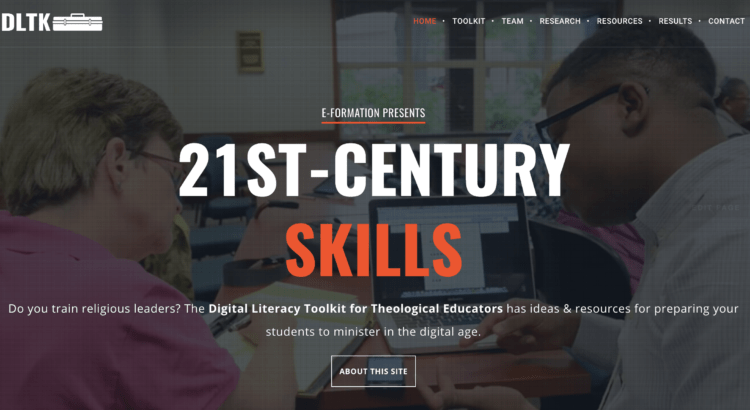The basic argument of my professional life is that lay and ordained ministers need digital literacy skills to do their work effectively.
Proclamation, education, pastoral care—nearly every task of religious leadership is a social practice. And nearly every social practice is becoming mediated in some way by technology.
Case in point: Recently I served on the faculty of Beyond Walls, the spiritual writing program at Kenyon College. Part of that experience was participating in an OpEd Project workshop designed to get the priests, ministers, and rabbis in attendance to claim their expertise and share it in public forums.
“The public needs to hear from thoughtful religious leaders,” the facilitators told us. And that requires some skills navigating today’s marketplace of ideas.
I know few religious leaders who navigate it better than fellow Beyond Walls social media instructor Sarah Lefton. I had a blast chatting with Sarah for the YouTube channel she created and for the podcast I help create. (Sneak peak: you can listen to the lightly edited interview audio here. A 10-15 tightly edited story is in the works.)
The lesson I relearned and relearned spending a week with Sarah? You’ve got to know your medium.
I want faith leaders in training to have the chance to learn the various media they will need to navigate when they land in congregations, schools, and other contexts. And I want them to have that experience regardless of the digital literacy level of their seminary professors and other mentors.
So I’m working with colleagues to create a Digital Literacy Toolkit for Theological Educators.
The site is a work in progress. Among other things, it is still incredibly slow.
But I hope you’ll have a look (maybe at our research-based list of literacies?) and consider either contributing or sharing with a theological educator who could themselves contribute—or could benefit from the resources we’re creating and collecting.
I can’t wait to tell you more about how all this is going.
